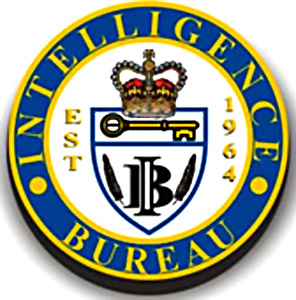Monday, July 23rd 2012, 05:46 AM
 New Delhi, July 23 — Fearing that the CIA
might use counter-terrorism meetings to recruit Indian intelligence
operatives, New Delhi has restricted agency-to-agency contacts with
Washington, says a new book.
New Delhi, July 23 — Fearing that the CIA
might use counter-terrorism meetings to recruit Indian intelligence
operatives, New Delhi has restricted agency-to-agency contacts with
Washington, says a new book.Scholar Prem Mahadevan says that unlike the 1970s when India was a virtual socialist state, the hunger for government jobs has fallen considerably since the Indian economy opened up in 1991.
"Today, middle-ranking IB (Intelligence Bureau) and RAW (Research and Analysis Wing) officers are vulnerable to enticement by well-funded foreign intelligence agencies - a factor which has constrained counter-terrorism cooperation post 9/11."
Mahadevan's book, "The Politics of Counterterrorism in India" (I.B. Tauris), says the fears are not altogether unfounded.
It reveals that since 2001, there have been at least two cases of penetration of RAW by the American Central Intelligence Agency (CIA).
"Also, at least nine RAW officers have gone abroad without leave since the agency's creation in 1968. Most defected while posted in Western Europe or North America, in pursuit of a more comfortable lifestyle.
"Subsequent investigations revealed that they had been recruited by Western intelligence agencies prior to their defection and had functioned as agents in place for some time."
The book says that particularly damaging was the defection of Sikander Lal Malik, a personal aide to RAW chief Rameshwar Nath Kao.
"Malik defected during the 1970s while posted to the US and is alleged to have taken extremely sensitive information with him."
Although Indian intelligence agencies have committed blunders, the book says, they are also responsible for some spectacular successes.
Despite official sympathy for the Palestinian cause, the agencies prevented anti-Israeli attacks on Indian soil that became common in Europe in the 1970s.
And in the years after the Iranian revolution of 1979, the IB and RAW together rounded up and deported dozens of Iranian and Iraqi terrorists intent on killing each other in India.
The IB, it says, "deserves credit for its successes in neturalising the threat from foreign intelligence agencies".
It says RAW once tapped the telephone of then Pakistan Prime Minister Zulfikar Ali Bhutto "but the agency could only hear his end of the conversation and had to guess what the other party was saying".
The book, however, says infiltrating into jehadi networks has become nearly impossible because of the very low number of Muslims in the Indian intelligence.
"The RAW does not have a single Muslim in its 10,000-strong manpower pool while the IB has a small number of Muslims.
"These operatives did a sterling job of raising new informer networks in Jammu and Kashmir during the 1990s... Despite their performance, the IB and RAW remain averse to employing Muslims, preferring to invest in technical collection."
Contrary to public knowledge, Indian intelligence agencies have faced budget cuts, the book says.
The RAW budget was slashed by 10 percent when P.V. Narasimha Rao was prime minister, denying it two badly needed reconnaissance aircraft. Also during Rao's term, a further 20 percent cut hit intelligence operations.
The book accuses then prime minister Morarji Desai of seriously damaging RAW because of his allergy to his predecessor Indira Gandhi, who founded the agency. Desai, it says, forced some of RAW's "most distinguished officers" into retirement, forced it to stop hiring new recruits, cut its strength by a third, and shut down its offices in Jaipur and Chandigarh.
Because of Desai, RAW's agent networks inside Pakistan, including those in Pakistani Kashmir, were deactivated "and were never rebuilt".
"During a conversation with the Pakistani president in 1978, he let slip that RAW had penetrated the Pakistani nuclear plant at Kahuta. The Indian agent on-site was identified and eliminated."
IANS
Source: Fearing recruitment, India restricts contacts with CIA - NY Daily News